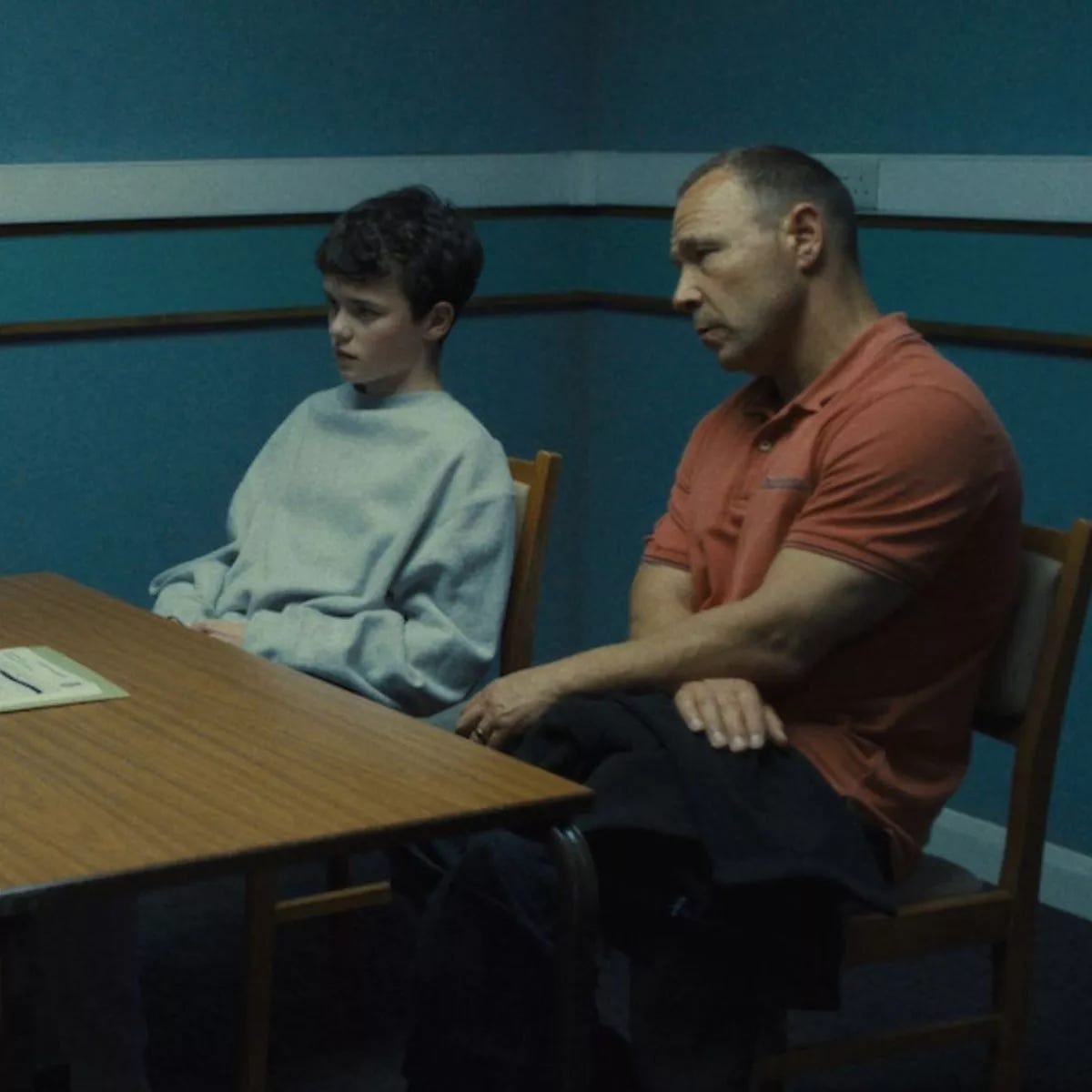How Scary is Netflix's "Adolescence," and How Do We Stay Courageous?
Disconnection, dehumanization, the systems failing our teens, and what we can do.
This is my last post about my latest special interest. Promise.
SPOILERS, SPOILERS, SPOILERS:
As you probably know by now, I LOVED Netflix’s “Adolescence.”
Haven’t seen it yet?
First of all, why not?
Second, you might want to stop here.
Saw it? I’d love to know what you thought of the series:
I’ve been devouring deep discussions about the show.
and sparked the inquiry I craved.On a lighter note: is anyone else waiting for Jade to get her own spinoff?
Let’s bust the big myth about the show before we continue:
it’s not about the dangers of social media.
You could just as easily say (erroneously) that it’s about England. The media tends to go for low hanging fruit. Don’t believe the hype, because the show is about so much more than the "manosphere."
“My concern is that we are scapegoating phones/social media/tech at the expense of making change in other systems and focusing on other factors contributing to our kids' struggles.”
-
Is it a sensational and scary story?
Of course.
Yes, as an HSP, I’m finely attuned to the fear and shame used to pull us in and propel the emotional arc. Yes, I’m raising a neurodivergent teenage boy.
The baby-faced 13 year old?
The lack of red flags?
They got me right in the gut.
I think the point is to get us to pay attention and not write this story off as an exception that doesn't apply to us.
Below, I’m sharing a few truly thoughtful and nuanced opinions that I don’t entirely agree with, from and .

Read ’s Perspective:
A child psychologist and author of Autonomy-Supportive Parenting, Edlynn helps parents to support their adolescents in developing independence and autonomy:
She feels that the show will be used as a tool to instill fear in parents and incite more control over teens. She says,
I couldn’t agree more.
But what I saw in “Adolescence” was a radical critique of the blunt hammer of systemic misogyny in general. Critique of what is already happening as we allow it to fester from one generation to the next.
Although we had different perspectives on the show, Emily and I came to the same conclusion about centering trust and connection with our kids.
While I agree with so much of what Edlynn writes, I didn't see the show as critical of teens as much as the systems that are failing them:
Educational systems aren't solely responsible, but what if they were more connection-driven and less top-down? (I have friends who are middle school teachers who believe the show should be required viewing for educators.)
Police and carceral systems aren't solely responsible, but wow they certainly are perpetuating top-down, dehumanizing intimidation.
Parents raising boys are not solely responsible, of course! But we do have a responsibility to break generational cycles, raise feminists, and model emotional regulation.
If Jamie had been in the US, he probably wouldn't have used a knife.
Worldwide, violence toward women and girls is a pretty darn serious problem. The scenario in the story isn’t actually so far-fetched.
“The show definitely sparked discussion and an emotional response. Interesting that although we had different perspectives we came to the same conclusion about the centrality of trust and connection.
-
Agreed, Emily! Thanks again for opening this dialogue. We agree on so much, especially that we can’t blame the phones, and taking away the phones won’t solve the problem.
Read ’s Perspective
“Misogyny and extreme violence, perpetrated by males towards females, has been a significant problem in our society for a lot longer than we’ve all had smart phones.”
-
A highly-sensitive psychologist bringing compassion to cycle-breaking mothering, Dr. Jenny Turner didn’t want to watch the show either. She warns parents against acute panic, encouraging calm and intentional work on our own emotional healing.
If this resonates, as it did for me, read the whole article:
”I believe that the most important thing for us to do as parents is to heal ourselves from our past experiences. To unlock the fear, vulnerability, terror, rage, shame and guilt that we hold in our body, from having experienced whatever challenges we experienced as a child.”
-
If we’re raising kids or teens in this world, modeling trust, healing and connection is our only choice.
I hope as a filmmaker Ocean will one day watch Netflix’s “Adolescence.”
It's an incredible piece of art, with a heartfelt desire to make a positive impact. But I’m certainly not forcing him, and I don’t imagine him going down a dangerous path.
Will I keep asking him to hang out with me, no matter how many times he says no? Heck, yes. Will I keep listening to him? Will I make sure he hears me critique mainstream media’s portrayal of women and girls?
You betcha.
And I’ll keep doing my cycle-breaking work too.
How about you? I'd love to hear your perspective and observations:








Hi Kate, I just saw you on a live video with Eliza. So inspiring.
"Heal ourselves from past experiences." And I think our children open doors this way.
Powerful essay. Thank you.
I will check out "Adolescence"
You're a wonderful Mom who "stays with," no matter what.
Lovely.